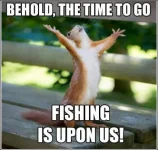Post 979 demolished your “arguments” and you could address anything I said.
But hey, keep pushing for laws based in the Jim Crow era and others that require demolishing the 4A and the 5A, it is a good look for the anti-civil right gun control crowd.
Not seeing the argument there.
There were laws of traffic laws in the Jim Crow era too- doesn't mean we have to get rid of them. Now it's true that historically, certain gun laws were used in racist ways, especially during and after Reconstruction. But it’s important to distinguish between that history and what modern gun laws are actually trying to do.
Today’s laws — like background checks or red flag laws — are designed to reduce suicide, domestic violence, and mass shootings, and are based on real-world observations and measures which have been proven to work. They’re not about targeting specific groups; they’re about risk-based interventions. And the vast majority are built to comply with constitutional protections. For example, red flag laws require court orders, evidence, and due process. They don’t eliminate 4th or 5th Amendment rights — they’re subject to them.
There are actually quite a few other examples of laws or systems that were originally shaped by racist intent — especially during the Jim Crow era — but are still in use today, even though their modern justification is very different. One clear example is
felon disenfranchisement laws. These were widely adopted in the South after Reconstruction to prevent Black men from voting. The idea was to criminalize certain behavior more likely to affect African Americans, then take away their right to vote once convicted. Today, those laws are still on the books in many states — not usually with the original racist intent (though there is still some of that).
Or take
zoning laws, as another example. It's true that zoning was historically used to keep neighborhoods racially segregated. But today, it's mostly used for
land-use planning — to separate industrial areas from residential ones, prevent overcrowding, and manage traffic or environmental concerns. Planners might not be thinking about race at all; they're thinking about infrastructure, schools, and public services.
Another one is
felon disenfranchisement. Originally, this was often about targeting Black voters — no question. But today, supporters argue it’s about
accountability and civic responsibility — that people who’ve committed serious crimes should show rehabilitation before regaining voting rights. Whether you agree or not, the reasoning has shifted from race-based suppression to more civic-minded (or at least public-facing) concerns.
Then there’s the use of
police surveillance tools. Some of these tactics — like loitering laws or neighborhood patrols — had deeply racist roots. But now they’re often defended on the grounds of
crime prevention and public safety, especially in high-crime areas. Law enforcement agencies may not be targeting racial groups per se; they’re responding to crime data and community pressure.
Even
voter ID laws, which echo some of the restrictions from the Jim Crow era, are often justified today as a way to
protect election integrity. Critics argue they disproportionately affect minorities and low-income voters — which is true in many cases — but the push for these laws is often framed around more pragmatic considerations of preventing fraud, not around race.
So framing all gun control as rooted in Jim Crow or unconstitutional is severely oversimplifying things. It’s fair to be skeptical of government power — a lot of people are — but that doesn’t mean all regulation is inherently oppressive. Like anything else in law or policy, the details matter.
But I understand continuing to defend your position necessitates massive generalizations



